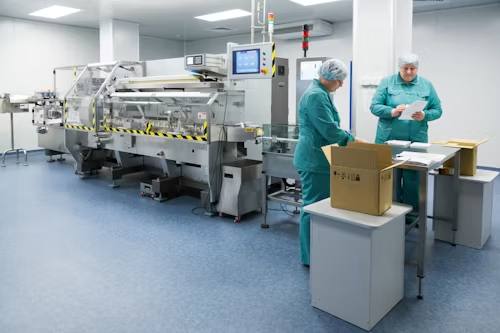The medical device industry is built on constant innovation. From life-saving technologies to cutting-edge diagnostics, companies like Gener8 are pushing the boundaries to bring safe, effective products to market. But with that innovation comes complexity—especially when it comes to regulatory compliance.
In a space where the rules are always evolving and the stakes are high, manufacturers need to stay sharp. From shifting regulations to global market challenges, here’s a look at where the hurdles lie—and how smart companies are navigating them to improve both efficiency and outcomes.
Keeping Up with Ever-Changing Regulations
Regulatory policies in the medical device world don’t stay still for long. New health challenges, emerging technologies, and revisions to older guidelines keep manufacturers on their toes. For companies operating across multiple markets, staying informed can feel like a full-time job.
The best way to manage this is to build a proactive strategy for staying ahead. That might mean signing up for real-time FDA updates, attending industry events, or investing in regulatory intelligence software that automates tracking and alerts your team when something changes. These tools save time and reduce the risk of missing critical updates that could delay product launches or trigger compliance issues.
Simplifying the Pre-Market Approval Process
Getting a new medical device approved can be one of the most demanding phases in development. It’s especially challenging for high-risk products where one misstep can lead to major setbacks. It’s not just about having a good product—it’s about presenting it in a way that aligns with strict regulatory requirements.
To reduce friction in this process, smart manufacturers engage with regulators early on. Open communication with agencies helps clarify expectations and smooth out potential issues before formal submissions. Bringing in experienced regulatory consultants is another game-changer. These experts can help you classify your device correctly, determine the right approval pathway, and avoid costly errors that slow you down.
Managing Documentation and Data Integrity
If you’re in medical device manufacturing, you know documentation isn’t just a formality—it’s a necessity. But keeping track of the mountains of records and ensuring their accuracy can easily become overwhelming. A missing entry or a mislabeled file can delay audits, production, or even regulatory clearance.
That’s where a robust Quality Management System (QMS) comes into play. A digital QMS helps centralize documentation, enforce version control, and protect data integrity—all while streamlining audits and reporting. It also makes training easier, ensuring your team understands how to manage documentation and maintain compliance from day one. With the right tools and training in place, documentation becomes less of a burden and more of a strength.
Preventing Quality Issues and Product Recalls
Nothing hurts a medical device company’s reputation faster than product recalls or quality failures. These issues not only threaten patient safety but also lead to financial losses and damage long-term trust in your brand. And in a world where even a minor defect can cause major fallout, manufacturers must be more proactive than ever.
Rather than relying solely on traditional quality checks, forward-thinking companies embed quality into every stage of the process. This means planning with risk mitigation in mind, implementing post-market surveillance tools to monitor feedback and performance, and involving stakeholders across departments for more informed decisions. Embracing FDA-recommended strategies for traceability and continuous improvement also strengthens your defenses against costly mistakes.
Breaking Into Global Markets
Expanding into international markets offers huge growth potential—but it also comes with a tangle of regulatory requirements that vary by region. For smaller companies with limited resources, navigating this terrain can feel like an uphill battle.
To succeed globally, it's wise to start by focusing on a few key markets that align with your strategic goals. From there, partnering with local experts—regulatory consultants or trusted distributors—can help you understand regional expectations and streamline approvals. These partners bring insight into both the technical and cultural requirements of each market, helping you avoid delays and build credibility faster.
Final Thoughts: Turning Compliance into a Competitive Advantage
There’s no sugarcoating it: regulatory compliance in the medical device industry is demanding. But with the right systems, partnerships, and mindset, companies like Gener8 are proving it’s more than manageable—it’s a real opportunity.
By staying informed, embracing innovation, working closely with regulators, and investing in quality from the ground up, manufacturers can navigate complexity with confidence. Compliance isn’t just about following the rules; it’s about building better products, fostering trust, and staying ready for what’s next.

